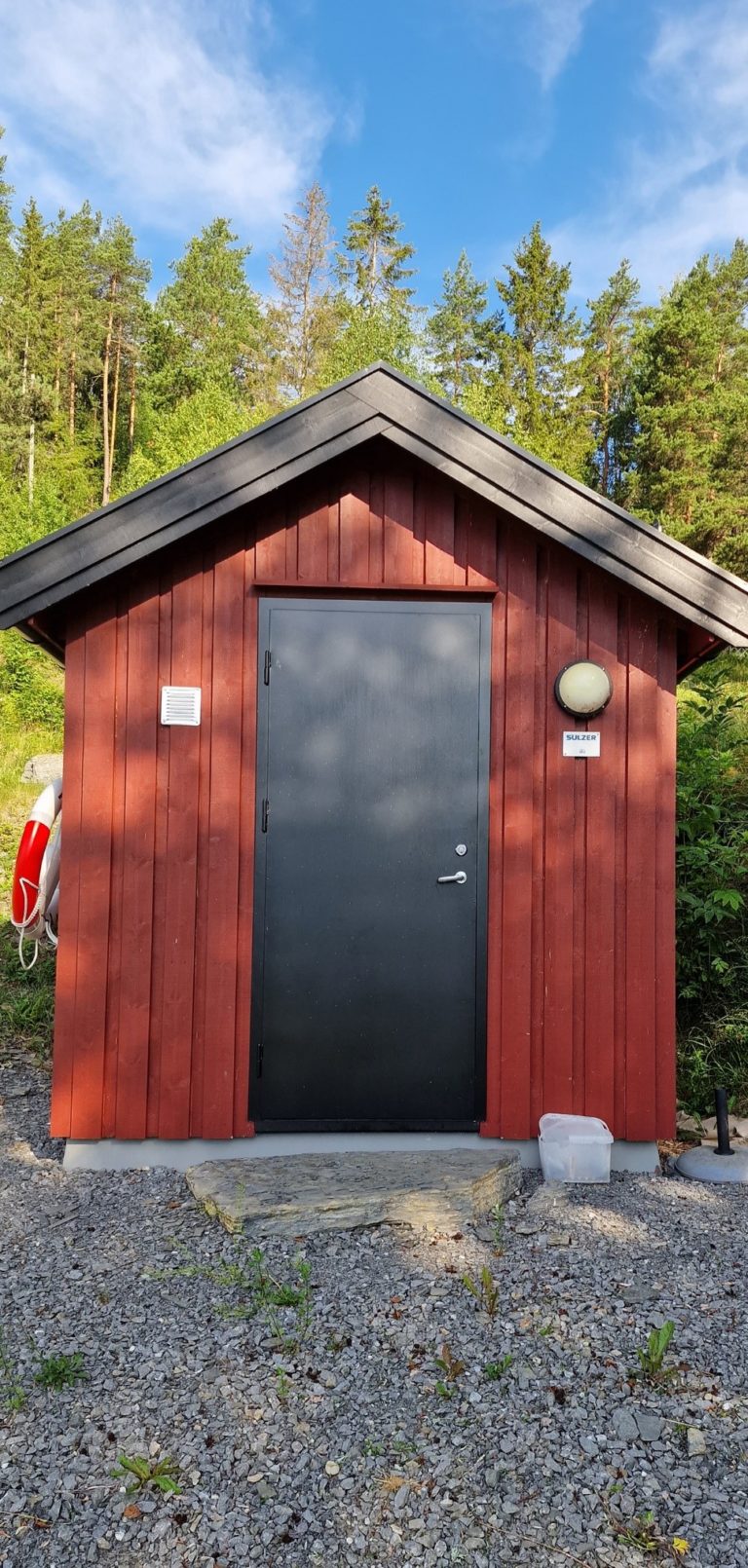One way to connect inaccessible locations is with small diameter, pressurized pipes. Wastewater is collected close to rural homes and businesses, and submersible grinder pumps are used to break up solids and push the material through the pipes. With a typical pipe diameter of 50 mm, these installations can be routed at relatively low cost over hills or even under lakes and fjords.
When one growing community outside Oslo investigated the options for a new wastewater system, it was in for an unpleasant surprise. The best available route to the nearest wastewater treatment site required the pipes to scale a 55 m high hill, and the pumps would need to generate at least 65 m of head.
Split opinion
The first pump manufacturer to evaluate the project recommended that the heavy lifting was split into two parts, with one pumping station located within the community and a secondary station halfway up the hill. For a group of around 200 houses, like this one, typical costs for a new pumping station are around EUR 100’000. The need for two stations instead of one, plus the requirement to supply power and maintenance access to the remote second station, threatened to more than double the estimated cost of the project.
Before committing itself, the community sought a second opinion, calling in an experienced wastewater consultant. They, in turn, asked Sulzer wastewater engineering specialists to review the requirements of the site.
After a detailed engineering evaluation, using its proprietary pump selection and design software tools, the Sulzer team was able to propose a solution that could meet the site’s head and flow requirements from a single, accessible pumping station located within the community. The Sulzer solution used two Piranha submersible grinder pumps, in a duty/standby configuration, with each powered by a high efficiency 11 kW motor.
All in one
In addition to the pumps, Sulzer was able to offer a complete turnkey solution including a power supply, controls, enclosure and the construction of the station’s concrete base and wet well. All at a total cost that was close to half that of the original proposal.
The community decided to go ahead with the Sulzer design, and the new pumping station has been in operation for more than three years. Like many other Sulzer wastewater pumping systems in use across the region, its performance and reliability have been excellent to date. Maintenance and technical support are provided by local Sulzer teams. That’s important, because the community is sited on a lake that provides Oslo with drinking water, so avoiding pollution incidents was a critical part of the design requirements.
Source: Sulzer Ltd.



